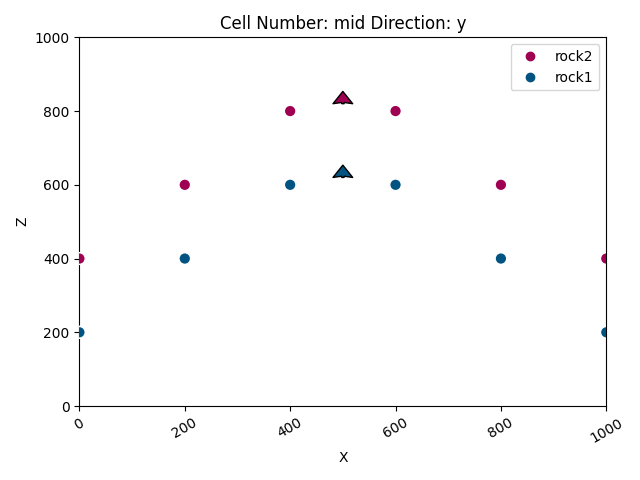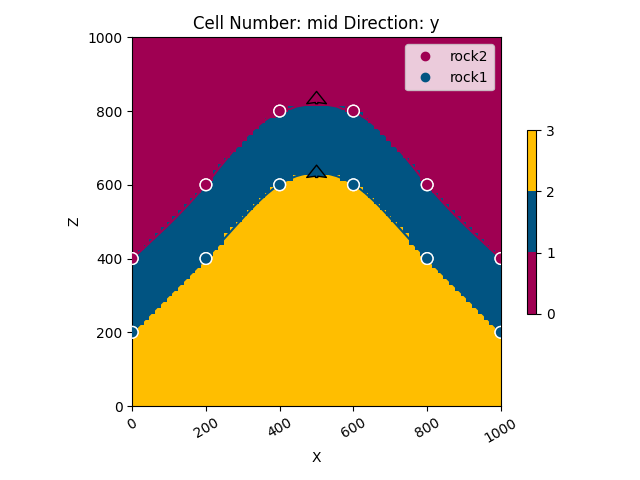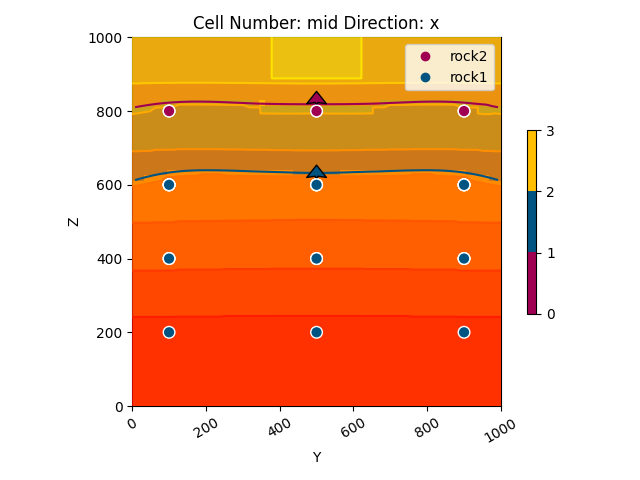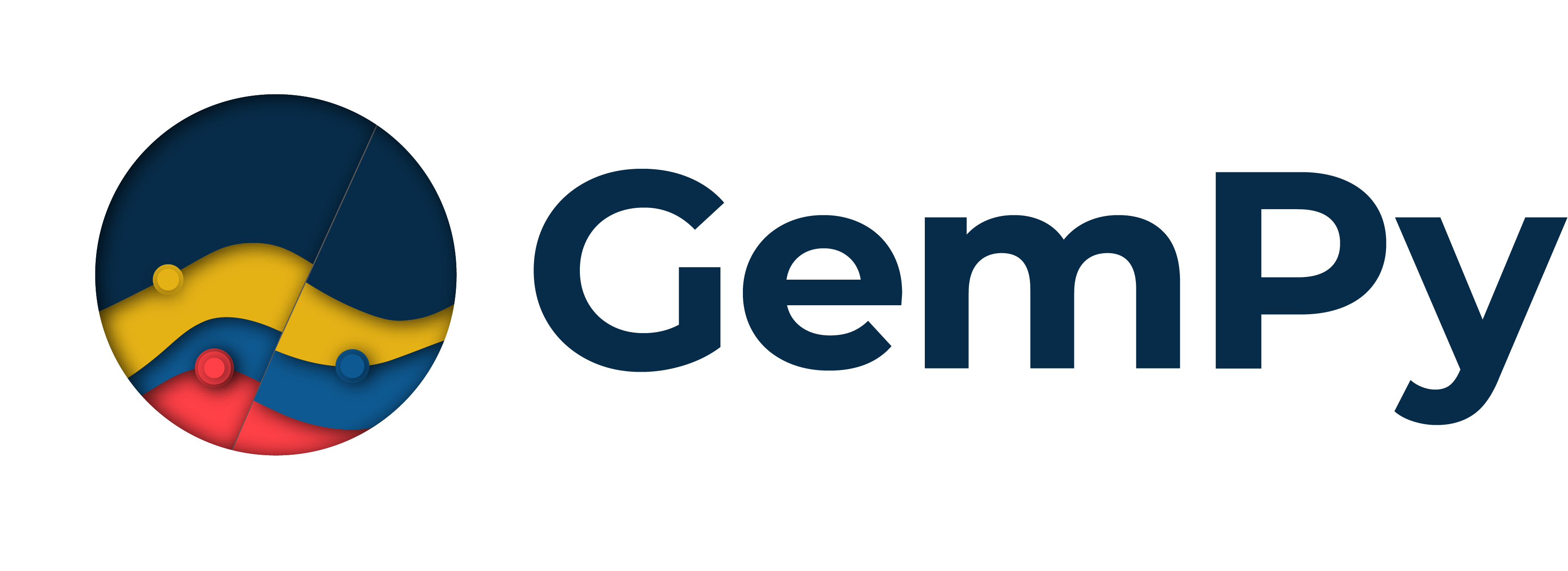Note
Go to the end to download the full example code.
Model 2 - Anticline¶
Simple model of an anticline
This script demonstrates how to create a geological model of an anticline structure using GemPy, a Python-based, open-source library for implicit geological modeling.
# Import necessary libraries
import gempy as gp
import gempy_viewer as gpv
# sphinx_gallery_thumbnail_number = 2
Generate the model Define the path to data
data_path = 'https://raw.githubusercontent.com/cgre-aachen/gempy_data/master/'
path_to_data = data_path + "/data/input_data/jan_models/"
# Create a GeoModel instance
data: gp.data.GeoModel = gp.create_geomodel(
project_name='fold',
extent=[0, 1000, 0, 1000, 0, 1000],
refinement=6,
importer_helper=gp.data.ImporterHelper(
path_to_orientations=path_to_data + "model2_orientations.csv",
path_to_surface_points=path_to_data + "model2_surface_points.csv"
)
)
# Map geological series to surfaces
gp.map_stack_to_surfaces(
gempy_model=data,
mapping_object={"Strat_Series": ('rock2', 'rock1')}
)
# Compute the geological model
gp.compute_model(data)
geo_data = data
Surface points hash: 2790bb25dce52b1a99e4a95e3e9dc276a842dbcc863051d0a4cf4169a8de9a6e
Orientations hash: 26fda5d7c0a74291d5fa18f880aeb84c106af0b771f95af103a025e4e80c4669
Setting Backend To: AvailableBackends.numpy
Chunking done: 8 chunks
Chunking done: 6 chunks
Plot the initial geological model in the y direction without results
<gempy_viewer.modules.plot_2d.visualization_2d.Plot2D object at 0x7ff2a576b0a0>
Total running time of the script: (0 minutes 3.355 seconds)



